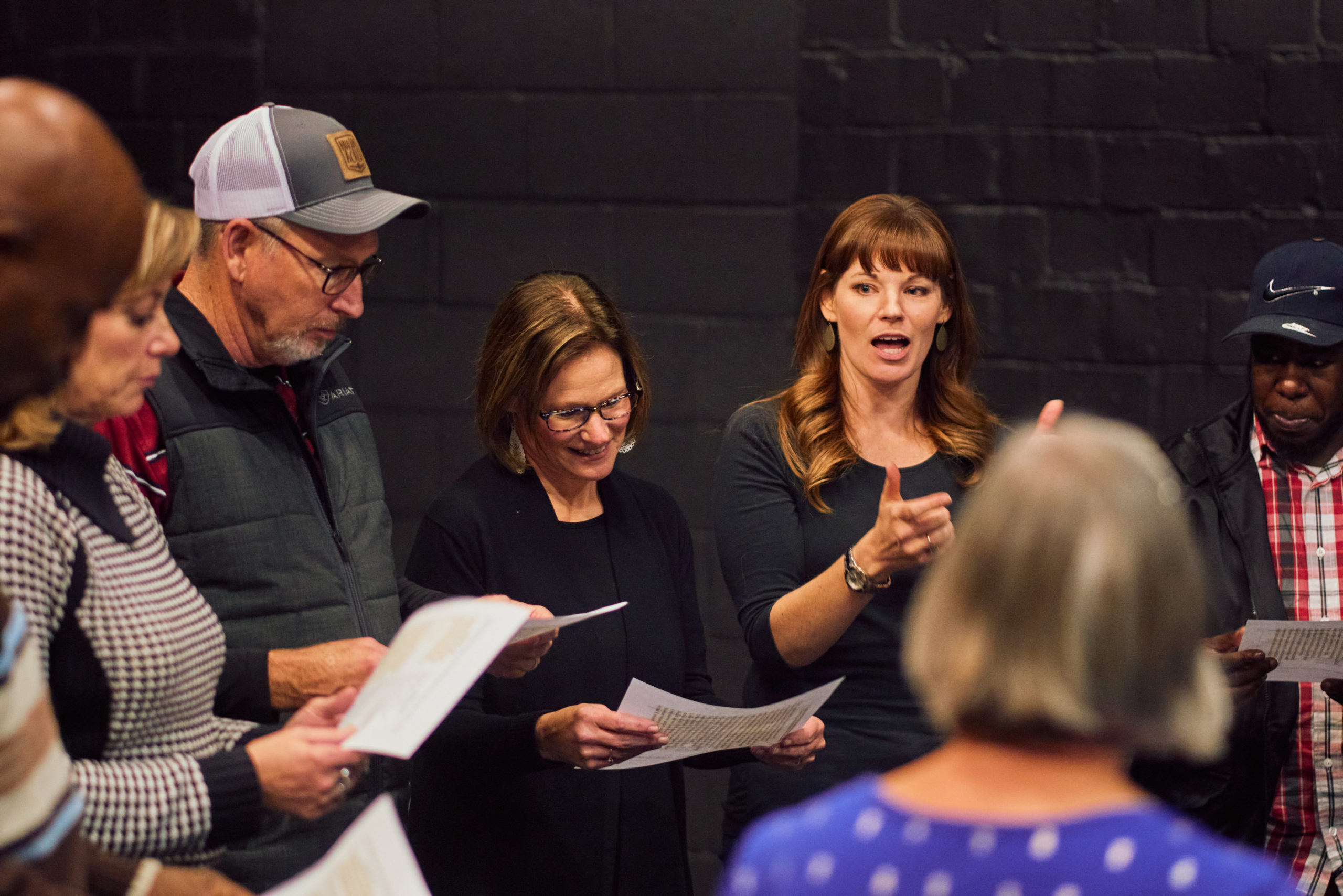Originally posted on Fort Worth Star-Telegram
Robin Ludwig, a 20-year member of the U.S. Air Force National Guard, was apprehensive about reading Shakespeare. However, a performance at Fort Worth’s Amphibian Stage made her “completely fall apart.”
She saw Stephan Wolfert, the founder of De-Cruit and a veteran, share his story by using the classic playwright’s words. Ludwig said she was able to relate to Wolfert’s story and decided to sign up for the workshop program. De-Cruit uses behavioral science and Shakespeare to help veterans find ways to heal from trauma and other difficult experiences. Veterans read Shakespeare passages relating to war and practice healing techniques in a workshop. The workshops provide them with a safe space, instead of acting in front of an audience.
“I have dealt with things that are worthy of being noted, worthy of being put in their proper place,” Ludwig said. “I was worthy of moving on from situations that were less than ideal.”
Across Fort Worth, people are turning to visual and performing arts to help them process traumatic events. By painting, making pottery or learning the lines from a play can help put people on the path to healing, therapists and community leaders say.
Seven in 10 adults have experienced some sort of traumatic event at least once in their lives, according to the National Council for Behavioral Health.
“Art provides a really powerful medium and tool to communicate, to express what’s often hard in words,” said Jashley Boatwright, an art therapist at The Art Station in Fort Worth.
SHAKESPEARE HELPING VETERANS
Wolfert founded De-Cruit in 2017. He developed the program with the help of behavioral scientists. De-Cruit uses the bond veterans have with each other and trauma-informed practices to help those who’ve experienced difficult situations.
The program has helped nearly 3,000 veterans around the world with its programs. The Amphibian Stage, a theater company, hosts the program for veterans in Fort Worth. The program teaches participants coping strategies, breathing techniques and classical actor training. Ludwig said before De-Cruit she didn’t realize she faced a traumatic experience.



